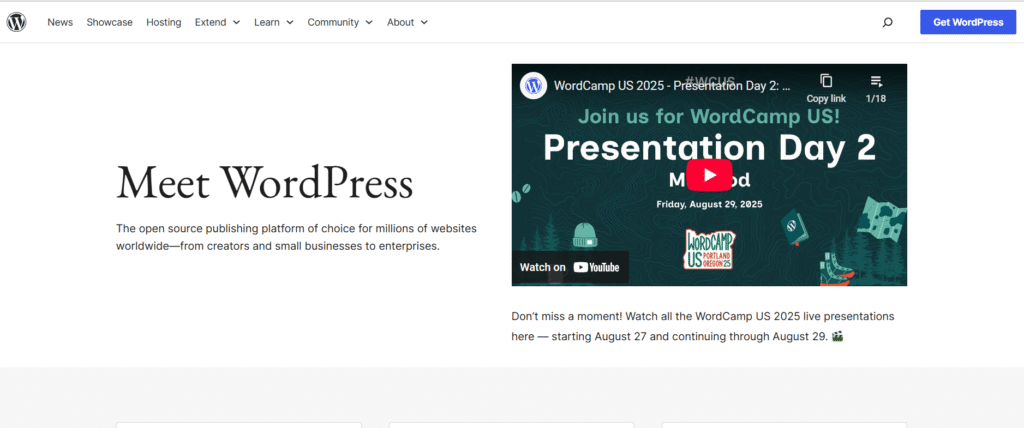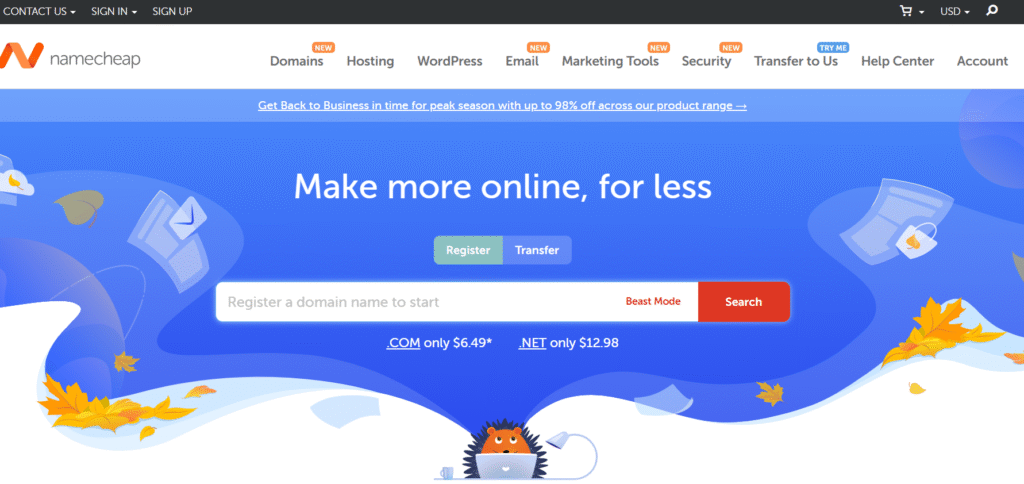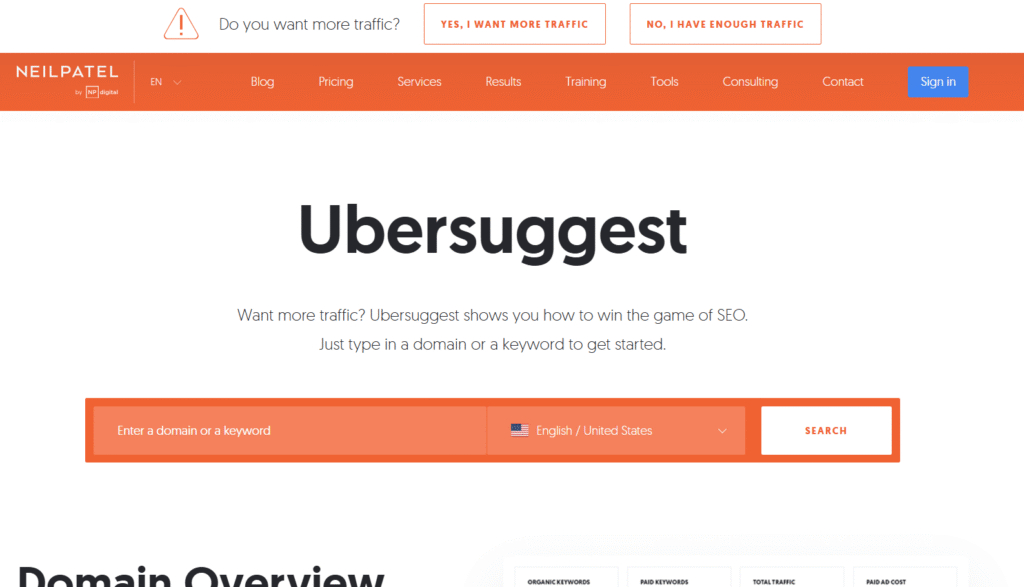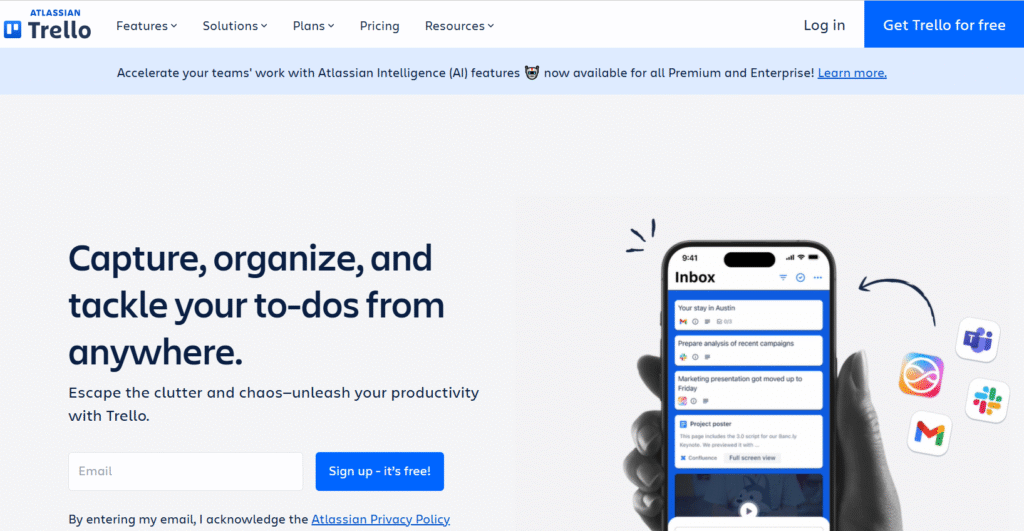How To Start A Blog And Make Money

Look, I get it. You’re doom-scrolling through social, watching people flex that “work from anywhere” lifestyle, airport lattes, rooftop sunsets, laptops on beaches, and you’re thinking: “There’s gotta be a way I can do this too, right?” Good news: there absolutely is. And it starts with something almost laughably simple, launching your own blog.
I’ve been in the personal finance game for years, and here’s the straight truth: blogging isn’t a cute pastime anymore, it’s a real, scalable business model.
I’ve watched complete beginners go from “no audience, no clue” to five figures a month by stacking consistent content, smart monetization, and basic SEO. No secret handshake. No trust fund. Just clear strategy, compound effort, and the willingness to hit “publish” more than once.
Ready to turn your thoughts into dollars? Perfect. We’ll take this step by step, zero fluff, all action, because honestly, it’s way easier than you think once you know exactly what to do.
What Is A Blog?
Think of a blog as your personal corner of the internet where you get to be the expert. It’s essentially a website where you regularly publish content, which could be articles, stories, tutorials, or even your random 2 AM thoughts about why pineapple belongs on pizza (controversial, I know).
But here’s the kicker: blogs aren’t just digital diaries anymore. They’re powerful marketing machines, lead magnets, and most importantly for us, money-making platforms. Every time you hit “publish,” you’re potentially creating another income stream.
The beauty of blogging? You don’t need a journalism degree or years of writing experience. You just need something valuable to share and the willingness to show up consistently.
How Do Blogs Make Money?
Ah, the million-dollar question! Let me break down the main ways your blog can start padding your bank account:
Google AdSense is probably the most straightforward method. You basically rent out space on your blog to advertisers, and every time someone clicks or views those ads, you get paid. It’s like having a digital billboard on your property.
Affiliate marketing is where things get really interesting. You recommend products you genuinely love, include special tracking links, and earn commissions when people buy through your links. I’ve seen bloggers make $10,000+ monthly just from affiliate commissions alone.
Sponsored content is another goldmine. Brands pay you to write posts featuring their products or services. Once you build authority in your niche, companies will literally pay you to share your opinions.
Your own products or services, this is where the real money lives. Online courses, eBooks, consulting services, membership sites, the possibilities are endless.
How Long Does It Take To Make Money Blogging?
I’m not gonna sugarcoat this, blogging isn’t a get-rich-quick scheme. Anyone telling you otherwise is probably trying to sell you something 🙂
From my experience and what I’ve observed in the industry, most serious bloggers see their first meaningful income around the 3-6 month mark. But here’s what “meaningful” looks like realistically:
- Month 1-4: Maybe $0-50
- Month 4-10: $50-300
- Month 10-17: $300-1,000+
The timeline depends heavily on your niche, content quality, and marketing efforts. Financial blogs, for instance, tend to monetize faster because financial products typically offer higher commissions.
But remember, those first few months are investment months. You’re building your foundation, establishing authority, and creating that crucial content library that’ll keep earning you money years down the road.
How Much Does It Cost To Start A Blog?
Here’s some good news: Starting a blog won’t break your budget. We’re talking about one of the most affordable business models out there.
Your main expenses are:
- Web hosting: $3-15/month
- Domain name: $10-15/year
- Premium theme (optional): $30-100 one-time
So you’re looking at roughly $50-200 for your first year. Compared to opening a physical store or even starting most online businesses, blogging is incredibly accessible.
Sure, you could go completely free with platforms like Blogger, but trust me, investing that small amount upfront gives you so much more control and earning potential.
Reasons To Start A Blog
1. Share Insightful Ideas
We all know worth sharing, right? Maybe you’re a master at meal prepping on a budget, or you’ve figured out the perfect morning routine that actually works. Your expertise matters, and blogging gives you a platform to reach people who need exactly what you know.
I’ve seen food bloggers turn their grandmother’s recipes into six-figure businesses. Tech enthusiasts who started sharing gadget reviews now get exclusive early access to products. Your unique perspective is more valuable than you think.
2. Build A Community
There’s something magical about connecting with people who get excited about the same things you do. Blogging creates this incredible two-way conversation where you’re not just broadcasting, you’re building genuine relationships.
Your comment section becomes this hub where like-minded people gather, share experiences, and support each other. I’ve watched bloggers create communities so strong that their readers organize meetups and become real-life friends.
3. Make Money
Let’s be real, this is probably why you’re here, and there’s absolutely nothing wrong with that! Blogging can be incredibly lucrative when done right.
I know bloggers earning anywhere from an extra $500/month (perfect for paying off debt faster) to $50,000+ monthly (hello, financial freedom). The income potential scales with your effort, audience size, and monetization strategy.
4. Promote A Brand
Got a business or service you want to promote? Blogging is like having a 24/7 salesperson who never takes a coffee break. Instead of pushing products directly, you provide value first, build trust, then naturally introduce your offerings.
This approach works because people buy from those they know, like, and trust. Your blog becomes the perfect vehicle for establishing all three.
How To Start A Blog In 10 Easy Steps
Alright, enough theory, let’s get your blog up and running!
1. Choose A Blogging Platform

When it comes to launching your blog, the very first step is picking the right platform, and WordPress.org is hands down the best choice for anyone serious about blogging. Don’t mix this up with WordPress.com (they sound alike but are completely different). What you want is the self-hosted WordPress.org version, because it gives you total freedom, complete control, and the ability to grow your blog however you want.
Why WordPress? Simple:
- Powers 40% of the entire internet, from small personal blogs to major news sites, WordPress is everywhere.
- Incredibly user-friendly (no coding required), if you can click, drag, and type, you can run a blog on WordPress.
- Thousands of themes and plugins, Customize your blog’s design, add features, and tweak functionality without touching a single line of code.
- Built for SEO success, WordPress is designed to help your content rank higher on Google and other search engines.
- Scales with your growth. Whether you’re starting a tiny personal blog or building a full-scale online business, WordPress grows with you.
Sure, platforms like Wix or Squarespace may look pretty at first glance and seem beginner-friendly, but here’s the catch: they’ll limit your growth potential in the long run. With WordPress.org, you’re investing in a platform that sets you up for success from day one.
Trust me on this one, start with WordPress and thank me later.
2. Choose A Hosting Platform
Your hosting provider is basically your blog’s landlord. You want someone reliable, fast, and supportive. Here are my top picks:
Bluehost: Perfect for beginners, one-click WordPress installation, and excellent customer support. Plans start around $3/month.
SiteGround: Slightly pricier but incredible speed and security. Worth every penny if you’re serious about growth.
HostGator: Great middle ground with solid performance and affordable pricing.
Look for these non-negotiables:
- 99.9%+ uptime guarantee
- 24/7 customer support
- Free SSL certificate
- One-click WordPress installation
3. Find Your Niche
This is where many new bloggers get paralyzed, but it doesn’t have to be complicated. Your niche should hit these three criteria:
- You’re genuinely interested in it (you’ll be writing about it A LOT)
- People are actively searching for information about it
- There’s money to be made (companies sell products/services in this space)
Some evergreen, profitable niches include:
- Personal finance and investing
- Health and fitness
- Parenting and family
- Technology and gadgets
- Home improvement and DIY
- Travel and lifestyle
From a financial perspective, niches with higher-priced products typically offer better monetization opportunities. Financial services, business tools, and health products often have generous affiliate programs.
4. Choose A Blog Name And Domain

Your blog name is more than just a title; it’s your brand. It should be memorable, easy to spell, and instantly give readers a clue about what your content is all about. The wrong name can hold you back, while the right one can make your blog unforgettable.
Avoid these common mistakes:
- Making it too long or complicated (short and snappy wins every time)
- Using hyphens or numbers (they’re confusing, hard to say out loud, and easy to forget)
- Choosing something too narrow (you might want to expand your topics in the future)
Some naming strategies that work:
- Your name + niche, Example: SarahsSmartMoney.com
- Benefit-focused, Example: DebtFreeJourney.com
- Creative combinations, Example: PennyPinchingPro.com
When it comes to domains, always grab the .com extension if it’s available. It’s what people naturally type, it’s trusted worldwide, and it’s the easiest to remember.
👉 You can check availability and buy your domain through trusted registrars like Namecheap, GoDaddy, or even directly when setting up hosting on Bluehost.
5. Design Your Blog
Good news, you don’t need to be a designer to create a stunning blog! WordPress themes handle the heavy lifting for you.
Free themes can work initially, but I’d recommend investing in a premium theme ($50-100) because:
- Better customization options
- Professional appearance
- Ongoing support and updates
- Mobile optimization
Popular theme providers include:
- Elegant Themes (Divi theme is incredibly flexible)
- StudioPress (Genesis framework is SEO-friendly)
- ThemeForest (huge variety of options)
Key design principles:
- Fast loading speed (aim for under 3 seconds)
- Mobile-responsive (60%+ of traffic is mobile)
- Clean, readable fonts
- Consistent color scheme
- Easy navigation
6. Brainstorm Topics And Conduct Research

Here’s my foolproof method for never running out of content ideas:
Competitor research: Find 10-15 successful blogs in your niche. Look at their most popular posts (check social shares, comments). Create your own unique take on these topics.
Keyword research tools:
- Ubersuggest (free version available)
- SEMrush (comprehensive but pricey)
- Answer The Public (shows what people ask about your topics)
Social media listening: Check Facebook groups, Reddit communities, and Twitter conversations in your niche. What questions keep coming up? Those are your blog post ideas!
Personal experience: Your struggles, wins, and lessons learned make for the most engaging content.
7. Write Your First Blog Post
Your first post doesn’t need to be perfect; it just needs to be published! Here’s a simple structure that works:
- Hook readers with an attention-grabbing intro
- Promise a specific outcome or solution
- Deliver valuable, actionable content
- End with a clear call-to-action
SEO basics to include:
- Target keyword in your title and URL
- Use headings (H2, H3) to structure content
- Include internal and external links
- Add alt text to images
- Write a compelling meta description
Aim for 1,500-2,500 words for your main posts. Google tends to favor longer, comprehensive content that thoroughly covers a topic.
8. Create A Content Calendar

Consistency beats perfection every single time. Search engines reward blogs that publish regularly, and your audience will start expecting fresh content.
Start with a realistic schedule:
- Beginners: 1 post per week
- Intermediate: 2-3 posts per week
- Advanced: 4-5 posts per week
Use tools like:
- Google Calendar (free and simple)
- Trello (visual organization)
- CoSchedule (built for content marketing)
Plan your content around:
- Seasonal topics (tax tips in spring, holiday budgeting in fall)
- Trending events in your industry
- Evergreen content that stays relevant year-round
9. Promote Your Blog
Build it and they will come? Yeah, that’s not how blogging works :/ You need to actively promote your content.
Social media strategy:
- Share each new post across all your platforms
- Join niche-specific Facebook groups and contribute valuable insights
- Use Pinterest for visual niches (food, fashion, home decor)
- Engage with other bloggers’ content genuinely
Email marketing (start this from day one):
- ConvertKit or Mailchimp for beginners
- Create lead magnets (free guides, checklists) to capture emails
- Send weekly newsletters with your best content
Guest posting: Write for other established blogs in your niche. It’s like borrowing their audience and introducing them to your expertise.
10. Monetize Your Blog
The fun part! Here’s when to implement each monetization method:
Months 1-3: Focus on Google AdSense and building your email list. Don’t expect much income yet, but get the systems in place.
Months 3-6: Start incorporating affiliate marketing. Only promote products you genuinely use and believe in. ShareASale and Amazon Associates are great starting points.
Month 6+: Consider sponsored content, your own products, and premium affiliate programs. This is when income typically starts scaling significantly.
Income expectations (realistic ranges):
- Months 1-4: $0-50
- Months 4-10: $50-300
- Months 10-17: $300-1,000
- Year 2+: $5,000-25,000+ (sky’s the limit!)
Final Thoughts
Listen, starting a blog isn’t just about the money (though the money is pretty awesome). It’s about building something that’s entirely yours, a digital asset that can provide financial security, creative fulfillment, and genuine connections with amazing people.
The biggest mistake I see new bloggers make? Giving up too early. Most people quit right before they would have started seeing real results. The bloggers who stick around for the long haul? They’re the ones building serious wealth.
Here’s what nobody tells you about blogging success: It’s not about being the most talented writer or having the most creative ideas. It’s about showing up consistently, providing genuine value, and treating your blog like the business it is.
I’ve watched incredibly gifted writers fail because they couldn’t stick to a schedule. Meanwhile, average writers with a great work ethic and business sense built six-figure blogs. Talent helps, but consistency and strategic thinking win every time.








